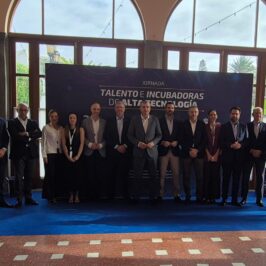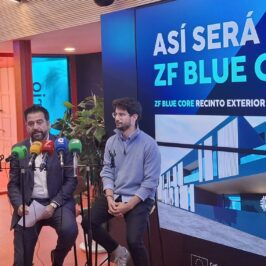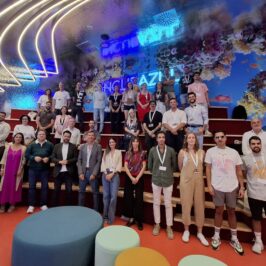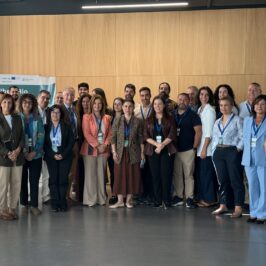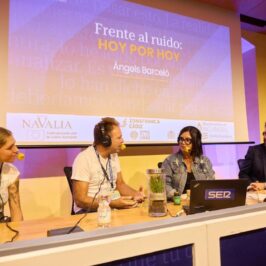 The biotechnological ecosystem of Galicia stands out for another year as a generator of new business projects. During 2022, 9 biotech companies were born in Galicia, which ranks as the second most bioentrepreneurial community. It created 14.5% of the bio firms born in Spain in 2022. Catalonia, the most bio-entrepreneurial, generated eleven signatures, only two more than Galicia. The third position is occupied by the Basque Country and Madrid, with six new companies. In 2021, the Catalan community gained five new biotech companies from Galicia. The top of the annual podium of bioentrepreneurship communities is a little closer with each passing year. And the Galician ecosystem linked to life sciences is ranked at the top, competing with autonomous communities with greater financial muscle and a deep-rooted tradition in the biotechnological innovation sector. All this data appears in the Asebio Report 2022, recently presented and prepared by the Spanish Association of Bioenterprises.
The biotechnological ecosystem of Galicia stands out for another year as a generator of new business projects. During 2022, 9 biotech companies were born in Galicia, which ranks as the second most bioentrepreneurial community. It created 14.5% of the bio firms born in Spain in 2022. Catalonia, the most bio-entrepreneurial, generated eleven signatures, only two more than Galicia. The third position is occupied by the Basque Country and Madrid, with six new companies. In 2021, the Catalan community gained five new biotech companies from Galicia. The top of the annual podium of bioentrepreneurship communities is a little closer with each passing year. And the Galician ecosystem linked to life sciences is ranked at the top, competing with autonomous communities with greater financial muscle and a deep-rooted tradition in the biotechnological innovation sector. All this data appears in the Asebio Report 2022, recently presented and prepared by the Spanish Association of Bioenterprises.
The study prepared every year by the employers' association of biotechnology companies in Spain highlights that “Galicia is consolidating itself as one of the autonomous communities that is experiencing the greatest growth”. And it points out “the maturity and competitiveness of an already strategic sector” for the Galician economy. The president of the Business Technological Cluster of Life Sciences (Bioga), José Manuel López Vilariño, believes he has an answer to explain the bio-innovative dynamism of Galicia. In his opinion, “public-private collaboration explains success; “Both complement each other and interpenetrate in the search for biotechnological excellence.” And he specifies it in what he describes as a “key tool”: the Consolidation Strategy for the Biotechnology Sector of Galicia 2021-2025, promoted by the Xunta through the Galician Innovation Agency.
According to the Asebio 2022 Report, The biotechnological ecosystem of Galicia is made up of 63 entities, 7.02% of the total. The advance compared to the previous year regarding the number of companies was 14.6%. It is the sixth autonomous community in total number of organic companies. Today, the six communities that concentrate the largest number of biotechnology companies are Catalonia, Madrid, Andalusia, the Basque Country, the Valencian Community and Galicia. The firms from these six communities represent more than 80% of the biotech business fabric in Spain.
The average turnover of organic companies in Galicia grew by 12.5% and stands at 7.2 million euros, compared to 6.4 million the previous year. Asebio highlights that Galicia's biotech ecosystem “reinforces the growth and competitiveness of the industrial sector.” In billing it is only surpassed by Madrid, Catalonia, Aragon and Cantabria. This growth is reinforced with key initiatives such as the Center for Innovative Services for Biotechnology Companies (CSIEB) of the Biopolo Sionlla, current headquarters of Bioga, which responds to the current needs of the bioindustrial fabric.
NEW COMPANIES. Galicia experienced the birth in 2022 of nine bio firms. And they are:
- Aptate degree (Ourense): Platform for the discovery of new protein-degrading compounds, based on the combination of an aptamer and a degrader, which takes advantage of protein degradation pathways within cells.
- Blue Marine Oil (A Coruña): Valorization of discards and by-products of fish, fruits and vegetables in order to obtain oils, nutrients and substrates with high added value for animal feed, the nutraceutical, cosmetic and agricultural fertilizer markets.
- Cell Factory (Ames): Research, development and commercialization of biotech recipes for the generation of products for application in food, cosmetics, pharmacy and chemistry.
- Nanocells Farms (Santiago de Compostela): Innovation and development of production processes for the synthesis of bacterial nanocellulose, its industrial scaling and applications in products with high added value and technology.
- Diversa Technologies (Santiago de Compostela): Drug delivery technology based on lipid nanoemulsions that allow the safe and effective intracellular administration of complex macromolecules and small hydrophobic molecules.
- Enzicas Bio (Santiago de Compostela): Generation of a food additive from the cultivation of the Aspergillus Oryzae fungus on chestnut starch, to generate a biotechnological solution that allows a reduction in the maturation times of dairy and meat products by a third.
- Hifas Innovation Hub (Pontevedra): Early discovery of drugs from fungi as a natural source of obtaining antibiotic compounds against resistant infections.
- New Exosomes Technology (Lugo): Research, development, manufacturing and marketing of products and services in the field of human and veterinary health, as well as analysis and research kits aimed at the clinical and hospital sector.
- Proplantae Plant Health (Pontevedra): Biotech plant health and R&D&I laboratory that relies on the diagnosis of plant diseases and the prescription of sustainable treatments.
Furthermore, in the Asebio 2022 Report, Galicia positions itself in the evolution of specialized venture capital funds, highlighting the constitution of the Bio private capital fund&Tech Smart Capital, which has as promoter partners Noso Capital SGEIC, Zendal and the co-founders and CEO of the companies Mestrelab Research and IMSPEX Diagnostics Ltd.
José Manuel López Vilariño, president of the Life Sciences Business Technology Cluster of Galicia (Bioga), in response to the Asebio 2022 Report and in whose preparation Bioga collaborates, highlights “the relevant role of Galicia in the biotech ecosystem of Spain.” In his opinion, “the data reflects the work and effort of all the actors who have been working in Galicia for many years to promote the sector” in 2022. López Vilariño, who assumed the presidency of Bioga last June, also recognizes that achieved is the result of “joint work between the public and private sectors” and the commitment of entrepreneurs, researchers, small and large companies, the three Galician universities, biomedical foundations and all the agents that make up Galician biotechnology. The president of Bioga sets the challenges to continue keeping Galician biotechnology at the top during the coming years. “We want to energize initiatives that bring out talent, promote the transfer of knowledge and bet on attracting investment and intersectoral hybridization,” says López Vilariño, who highlights “the trust of the Xunta, through the Galician Innovation Agency.” “It is an incentive to continue growing, to continue innovating, to continue competing to make a place for ourselves each year among the best.” In his opinion, “public commitment represents a responsibility and a requirement for the Galician biotech sector.”




